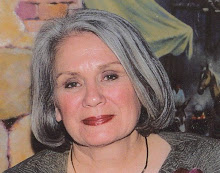Staging is a tool that most doctors use in following the progression of Alzheimer's in patients. There are various forms of staging. One is the number system 1 through 7, another is just Early, Middle, and Late. In staging which is not altogether perfect, one can track and prepare for the current place a patient may be in. My husband is in the Middle stage of the disease. He can still dress himself, bathe, perform basic functions, eating, toileting and the like by himself....although with supervision and instruction. He responds to simple directions and seems to understand conversations when it is one on one. His short term memory is almost gone. He will forget that you told him several minutes ago that his coffee is on the table. Sometimes he doesn't know where the table is. You ask him to sit down on the couch and he will turn in circles unable to locate the couch unless you take his hand and guide him to it. I had read about this stage and was somewhat prepared for it.
However, what I have found missing in all that I have researched and read is there seems to be an absence of staging for us, the caregiver, the spouse, the family of the patient. So in the process of my own experiences in dealing with this disease, I have come to realize that we too go through stages. The early stage is one of denial. Yes, he/she has Alzheimer's but with medication holding it, the disease, at bay he will have a "little" memory loss but will be himself for a long time. I can deal with that...memory loss. I will be his memory. Besides, some memories are best forgotten.
Then, the early middle stage, anger, impatience, resentment set in. Expectations are still high and at every turn are completely dashed. No, we can't travel as we had once planned. No, we are no longer able to enjoy the quality of life we once had together. Life becomes a series of doctors' appointments, arrangements with senior day care, making all of the decisions and doing all the tasks that you once shared.
Then the middle stage, letting go. The realization sets in that the life you both once had is over, that major changes are taking place and with each day, you let go of memories. Yes, you let go of memories. It becomes necessary for survival. You cannot cling to what was, you begin to live in the moment, the now because it changes hour to hour, day to day. Your mindset as a caregiver takes over. You are no longer a partner, a spouse, a friend. You are the one source of strength, comfort and care.
The late stage is one of disconnect. This is the hardest stage for us. I have witnessed it in some of the people in my support group. You come to understand what you must do for your loved one and yourself. And while guilt is strong in the beginning it is overcome by the reality that you can no longer meet the demands of the disease.
I love my husband, and will hold the memory of him in my heart. I still hug him, hold him and enjoy the warmth of his presence. When my father died, I remember clinging to an old sweater of his that he wore daily. It smelled of him and it gave me solace in my grief. It is now that same feeling when I touch the hand of the man that was my husband. I miss him and for the moment that touch gives me solace in my grief.
Saturday, December 18, 2010
Subscribe to:
Comments (Atom)
